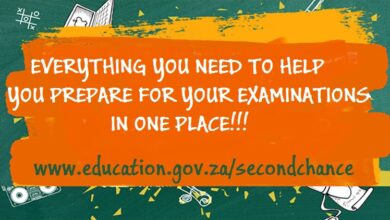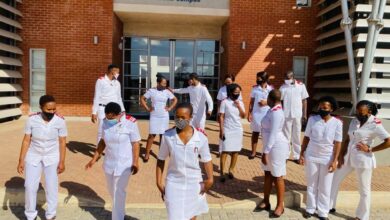New proposal for student loans in South Africa

New proposal for student loans in South Africa
SOURCE: BUSINESS TECH
_____
The Department of Higher Education, Science and Innovation says there has been a discussion with private banks regarding the possibility of a loan scheme supported by government guarantees to assist students in funding their studies in South Africa.
Responding in a written parliamentary Q&A this week, the department was asked whether the private sector, particularly private banks, would be approached to provide loans to so-called ‘missing middle’ students for their studies.
Blade Nzimande, the minister of higher education, said that no agreements with the banking sector had been entered into as of yet; however, a new comprehensive student funding model for universities and colleges was being developed to assist these students.
‘Missing middle’ refers to an income bracket that is too high for households to qualify for state support through grants and other social development initiatives but still too low for households to finance themselves due to financial constraints.
The minister said that the department was looking at the possibility of introducing a loan scheme supported by government guarantees for funding.
In terms of further research done on loan facilities – and whether they could create a debt trap, as seen in the United States – the department said that it conducted earlier work in 2016 on the issues relating to the feasibility of loans.
Recommendations on the findings from the department are now under further discussion. A prominent recommendation stemming from the research was for an income-contingent loan model, which would work alongside the tax-collection authority (SARS).
“In investigating a possible future loan model, the department will be mindful of the student debt situation and the feasibility of collecting loans,” it added.
University fees have been a controversial topic in South Africa, with many students having to take out loans at exorbitant interest rates to try and get qualifications to fight for a spot in the tight job market.
At the start of this year, the minister announced a CPI-linked increase in tuition fees for 2022, noting that the sector relies heavily on tuition and residence fee income from universities to remain operational.
According to an independent BusinessTech analysis, the average cost for the first year of a degree in South Africa is approximately R62,000. Degrees, such as law or engineering, can reach between R49,390 and R62,598, respectively.
Residency fees, as well as food allowances, then complicate the matter more, pushing the price of quality tertiary education even higher.
Nzimande, when addressing the UniZulu Inaugural Conference last week (17 November), said that the country had gone a long way in providing free higher education for the working class and the working poor.
He said that the National Student Financial Aid Scheme (NSFAS) has grown significantly and aided the increase of the black middle class and black professionals in the country.
THE END.
_____
Also Read: Various stages of loadshedding will be implemented during the week.
_____




